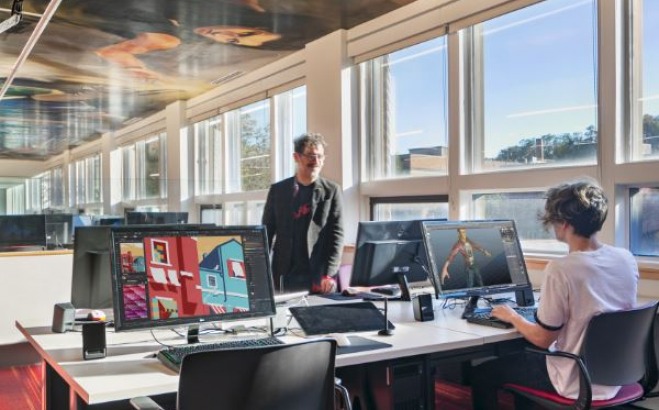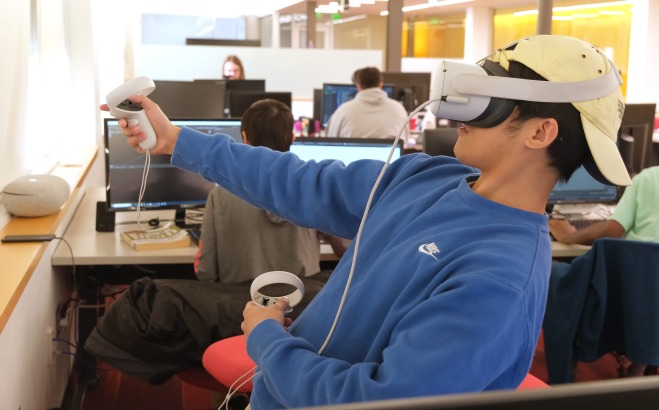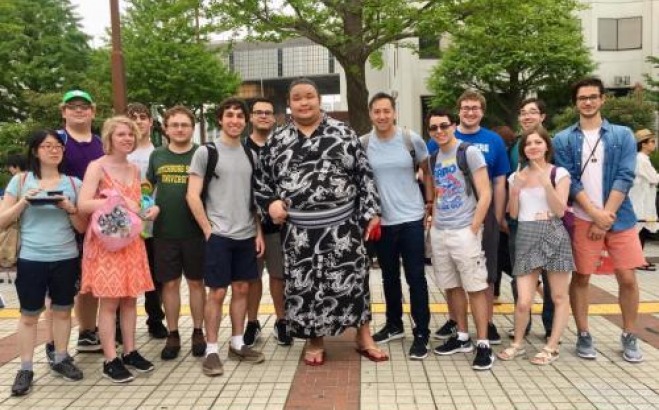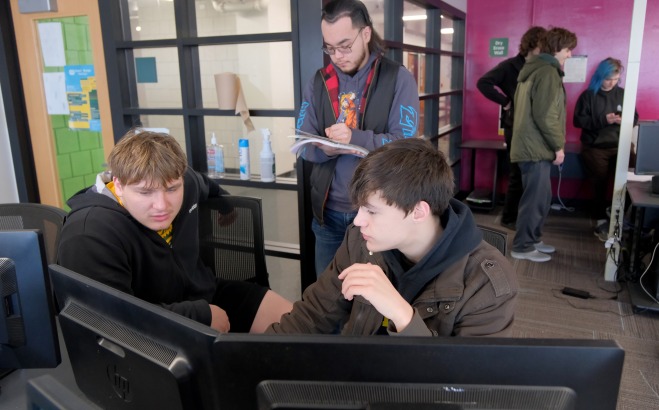
In Short
The major in Game Design – the first of its kind in a public institution in the Northeast – seeks to make the methods and tools of game design and development accessible to everyone.
Student Games Showcase
Program Overview
We strive to produce strong game creators with robust skill sets, able to work independently or in productive teams to create powerful, thought-provoking games with solid gameplay mechanics, unified aesthetics, and engaging stories.
Students learn core concepts of game design, foundations of visual art, and fundamentals of game logic and programming. They learn to design games by creative brainstorming, problem-solving, iterating, and focusing on the player. They learn to develop artistic concepts into fully realized 2D and 3D art assets based on solid research and art foundations.
Students build proficiencies with current software, platforms, hardware, programming languages, and anticipate learning new tools as needed. They are eager to explore the problems and possibilities inherent in new platforms including mobile, VR, augmented reality, or tools not yet imagined.
Students learn to consider games through historical, social, aesthetic, and theoretical lenses, and to develop a sense of civic and global responsibility through the study and practice of serious games. They design excellent games with personal vision.
Students develop skills in managing time, resources, and personalities by working towards a common goal with their production teams. They learn to manage, playtest, critique, troubleshoot, and release game projects that create memorable experiences for players. And they promote their achievements in order to expand opportunities for their games and themselves.
Hear from Game Design alumnus Kris Camp '24, CEO of IconicARTS in this spotlight video.
Experiential Opportunities and a Look Inside the Courses
Game Capstone
Student Games
Visions
Study Abroad
Courses and Events
Curriculum and Other Information
- BS, Game Design - Program information from the University Catalog.
- Four-Year Plan of Study - Required and elective courses for program completion.
The mission of the BS in Game Design is to educate students in professional concepts of game design and development, informed by a liberal arts and sciences education. Our major strives to produce strong game creators with lifelong, robust skill sets and the ability to create meaningful, thought-provoking games and related media that shape a rapidly evolving field; one that is both a powerful medium for creative expression and a means to address complex problems in their communities and beyond.
Game Design students will, through a combination of required courses and electives, be exposed to and attain competency in the following concepts, practices and skills:
- Students will be able to create original games following game development best practices.
- Students will be able to demonstrate competency with industry-standard software and tools.
- Students will be able to effectively collaborate on iterative team-based projects.
- Students will be able to apply principles of game systems and programming.
- Students will be able to apply visual art foundations and best practices to the creation of game art.
- Students will be able to analyze games, design, and play from a variety of perspectives.
- Game and level designers
- Producers
- Data managers
- Production assistants
- Interactive designers
- Game analysts
- Writers
- Game artists
- Programmers
- Game localization positions
- Quality assurance testers











